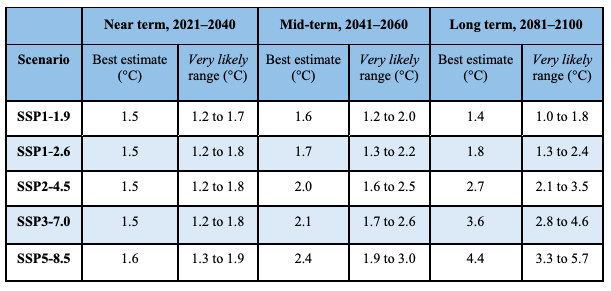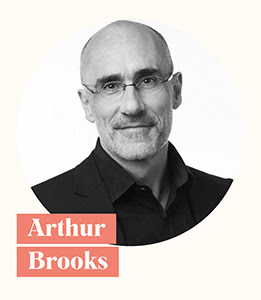Volcanoes are erupting in The Philippines, but on-fire Australia received some welcome rain. The Iran war cries have been called off and The Donald’s military powers are about to be hamstrung by the Senate. Meanwhile, his impeachment trial is starting, and we’re all on Twitter for a front-row seat.
What Could Go Right? Our resilient climate future
A clear-eyed look at the Intergovernmental Panel on Climate Change (IPCC) report.
This is our weekly newsletter, What Could Go Right? Sign up here to receive it in your inbox every Thursday at 6am ET. You can read past issues here.
Code red for humanity. Time is running out. We’ve spent the week scouring coverage of the new Intergovernmental Panel on Climate Change (IPCC) report. All told, we don’t think it quite met the threshold of scaremongering, but there are certain scary quotes and stock phrases that have been repeated ad nauseam, as well as some sloppiness. As per usual, we’re of the opinion that since there is a limit to fear’s ability to galvanize, let’s instead evaluate the situation clearheadedly in order to chart the best path forward.
We aren’t here to put lipstick on a pig. We’re here—as one Twitter user put it—to separate the sober from the alarmist, and to take stock of how we talk about climate change as a whole. It’s a stance we’re borrowing from TPN Member Ted Nordhaus and others at The Breakthrough Institute as well as a handful of climate scientists and reporters. For the discussion below, we’re specifically taking from this Twitter thread that Nordhaus wrote earlier this week as well as select articles from media outlets.
The IPCC report presents five different emissions scenarios to envision five different climate futures in the short, medium, and long term, including an estimate and a range for warming. If you haven’t seen these scenarios, here they are in a handy chart:

In the over-3-degrees-Celsius-warmed world of the last two scenarios, we’re talking intensely frightening outcomes. These are the outcomes that drive a lot of media coverage and take up a large amount of attention in the IPCC report itself (more on that in a very interesting read here). But the last two scenarios are also highly implausible given the trends toward renewable energy. They assume we will massively increase our coal consumption, not limit it. Even the IPCC rates them as “low likelihood.”
Along with that focus on worst-case scenarios is a set mitigation target of 1.5 Celsius, which Nordhaus describes as just as implausible. The combination of knowing we’re probably going to blow by that target and the focus on apocalyptic outcomes leads to the very natural response of apathy and despair—something crucial to avoid in a world where we need to keep up the pressure on our politicians to advance clean energy solutions and make sure that the developing world gains access to the material advancements the developed world enjoys.
Framing the climate change conversation around targets means that when we miss one, we inevitably misunderstand the challenge ahead as a pointless exercise, and even the future itself as a pointless one to live in. But as Washington Post climate reporter Sarah Kaplan wrote this week, “. . . climate change is not a pass/fail course. There is no chance that the world will avoid the effects of warming—we’re already experiencing them—but neither is there any point at which we are doomed.”
Much more likely, Nordhaus says, we’re looking at a future somewhere between 2 and 3 degrees Celsius warmer, and preparing for that future means mitigation strategies to bring the warming down as much as possible paired with adaptation strategies for living in a different world than we’re used to. “That world will be hotter and climate hazards such as flooding and heat wave [sic] will intensify,” he wrote. “But we don’t actually know whether that will translate to worsening climate related disasters because that is just not dependent on hazard but exposure and vulnerability.” Meaning, for example, a heatwave can be life-threatening without access to air conditioning. It can shrink to an inconvenience with it.
Nordhaus and Alex Trembath, Breakthrough’s deputy director, go further into this discussion of understanding climate change as a long-term management issue and building a resilient world in their 2019 piece “Is Climate Change like Diabetes or an Asteroid?” And if you don’t mind a libertarian bent, Reason has a similar treatment to ours of the IPCC report here.
Before we go, let’s talk about toilets. We took up our main space on all things climate, but here are two other pieces we had our eye on this week. First, this excellent answer to the question “How do we know vaccines don’t have long-term safety risks?” from The Sydney Morning Herald. Second, this read from the Gates Foundation on how to bring safe, affordable sanitation to the world.
Below in the links section, rehoming otters is a wild success, the US adds nearly a million new jobs for the second straight month, Australia is creating a $280-million reparations fund for members of its Indigenous “stolen generations,” and more.

From us: “Moving forward is going to be a muddle. That’s actually what progress looks like: one foot in front of the other.” That’s TPN Member Ted Nordhaus with some climate optimism again. Back in March, we spoke to Nordhaus, along with Bina Venkataraman, author of The Optimist’s Telescope and a former senior climate change advisor in the Obama White House, and Jason E. Bordoff, founding director of the Center on Global Energy at Columbia University about how to move the climate conversation forward. We asked, “Is the narrative of climate catastrophism accurate, and is it doing us any good?” The consensus? Maybe we’re not f*cked. Watch the entire discussion or read an extract from it here.
Progress, Please
(Found good news? Tweet at us @progressntwrk or email.)
Other good stuff in the news
United States:
- Biden’s reconciliation bill would be a big f*cking deal | Vox
- Are there more reasons for hope than despair in the opioid epidemic? | The New York Times
- The NBA gave $6M in grants to Black-owned businesses and youth-focused groups | NBC News
- Got COVID rage? Here’s what to do with it | The New York Times
- US employers added 943,000 jobs in July and drove the unemployment rate down to 5.4% | AP
- A Colorado county will use marijuana sales tax to fund more than $2M in scholarships for school | The Hill
- Biden is pushing to phase out gas cars and tighten pollution rules | The New York Times
- US voters are largely united against partisan gerrymandering | The Hill
International:
- Apps are helping people avoid air pollution amid record wildfires and rising temperatures | CNBC
- Here’s more on how to fight climate despair | Vox
- China said it will provide 2 billion vaccine doses to the world | The New York Times
- Australia will pay $280 million in reparations to members of its Indigenous “stolen generations” | CNN
- Decades-old sea otter translocations have proven successful | The Wildlife Society
- After disappearing centuries ago, wildcats have returned to the forests of the southern Netherlands | The Guardian
- Iraq reclaimed 17,000 looted artifacts in its biggest-ever repatriation | The New York Times
- Evidence suggests that the pandemic productivity boom won’t be ending soon | The New York Times
TPN Member originals
- Analyzing “catastrophe”: What we should do now | Diane Coyle
- How to maintain the democratizing effect of remote work | Joan C. Williams, Rachel M. Korn, and Mikayla Boginsky
- What does true climate justice look like? | Jason Bordoff
- Don’t fear Delta or rising case numbers; get vaccinated | Tyler Cowen
Upcoming Events
Neue Denkmuster und konstruktiver Journalismus | Maren Urner | September 7
Diversity in Office, Equity in Campaigns | Anne-Marie Slaughter | September 23
Why Mobility Is Destiny | Parag Khanna | October 13
New Member Alert

Arthur Brooks is a Harvard professor, bestselling author, and public speaker. He has authored 11 books, including the national bestsellers Love Your Enemies, The Conservative Heart, and The Road to Freedom. He is also a columnist for The Atlantic, host of the podcast The Art of Happiness with Arthur Brooks, and subject of the 2019 Netflix documentary The Pursuit.
Listen to Arthur speak about about gaining happiness from new things and experiences.
A Swing and a Miss
Last week, we shared the image above, which we understood as a theoretical exercise on the power of solar. We heard from one of our readers, a research scholar who has done work on climate change, who brought up several important issues with the graphic, some of which we had not considered, and some of which we did and should have explicitly mentioned. First, it’s not possible to power the world entirely on solar cells, whether concentrated in one land area or spread throughout various countries. Second, the choice to illustrate how we can power the US or EU by blithely choosing a plot of earth in Africa—as if it is ours to choose—smacks of neo-colonialism and racism.
We regret including the image and want to thank our reader for bringing these points to our attention. Onward!
Until Next Time
Finally, a place to indulge our ash, mud, and lava tooth.


